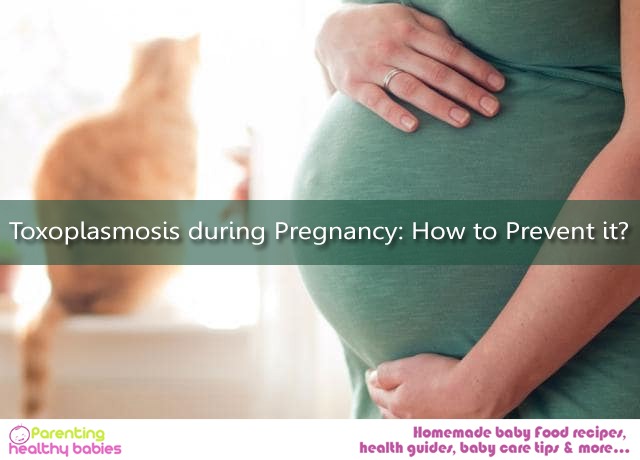Toxoplasmosis is a parasitic disease caused by Toxoplasma gondii. Its infection usually cause no obvious symptoms in adults. Occasionally there may be a few weeks or months of mild flu-like illness such as muscle aches and tender lymph nodes, eye problems may develop in few people. In those with a weak immune system, severe symptoms such as seizures and poor coordination may occur. If infected during pregnancy, a condition known as congenital toxoplasmosis may affect the child.Caught during pregnancy, toxoplasmosis can cause miscarriage, stillbirth or damage to the baby’s brain and other organs, particularly the eyes. However, most babies born with toxoplasmosis have no obvious damage at birth but develop symptoms, usually eye damage, during childhood or even adulthood. A few will have more serious symptoms such as blindness or brain damage.
The parasite can be found in meat, cat faeces, the soil where cats defecate and unpasteurized goats’ milk. Cats are the only animals that can have infected faeces. After it catches the infection through eating birds, mice or other raw meat, a cat can shed infectious faeces for few days.Toxoplasmosis cannot be caught by stroking a cat or having a cat as a pet. The infection comes from coming into contact with the infected faeces of a cat.Without testing, you probably won’t know you’ve been infected. The vast majority of infected people with healthy immune systems don’t have any symptoms at all. If you do, you may have painless swollen lymph glands and other generally mild symptoms, like muscle aches, fatigue, headache, fever, and possibly a sore throat or a rash.
Tests for Toxoplasmosis in Pregnancy
The risk of getting toxoplasmosis when you’re pregnant is very low. Pregnant women are not routinely screened for toxoplasmosis. It’s therefore important that you know how to prevent infection. Any which ways you can always do a blood tests for toxoplasmosis at any stage before or during pregnancy. The blood test can usually only show possible infection two to three weeks after any risk incident, as it can take this long for antibodies to be detectable. Risk of your fetus acquiring the infection is minimum in early months (up to 1st and 2nd trimester).
If you were infected in the third trimester (week 29 to 40), such infection caught later in pregnancy is more likely to spread to your baby, the risk of transmission may be as high as 70–80%, but if problems develop, they are less likely to be as serious. Most babies infected will be apparently healthy at birth, but a large proportion will develop symptoms later in life, usually eye damage.
Preventive measure:
When you have found out that you are pregnant, there are a lot of things you need to know. Sometimes just knowing where to start and which information you can trust can be a challenge.The advice outlined below may help to reduce your risk of developing a toxoplasmosis infection.
-
Reduce Risk from Food
To prevent risk of toxoplasmosis and other infections from food:
- Cook food to safe temperatures.
- Freeze meat for several days at sub-zero temperatures before cooking to greatly reduce chance of infection.
- Peel or wash fruits and vegetables thoroughly before eating.
- Wash counter tops carefully.
- Wash cutting boards, dishes, counters, utensils, and hands with hot soapy water after contact with raw meat, poultry, seafood, or unwashed fruits or vegetables.
- Avoid unpasteurized goats’ milk and dairy products made from it.
- Do not handle lambing ewes and do not bring lambs into the house.
-
Reduce Risk from the Environment
To prevent risk of toxoplasmosis from the environment:
- Avoid drinking untreated drinking water.
- Wear gloves when gardening and during any contact with soil or sand because it might be contaminated with cat feces that contain Toxoplasma. Wash hands with soap and warm water after gardening or contact with soil or sand.
- Understand the importance of washing hands to prevent infection.
- Have someone else clean the litter box.
- Feed cats only canned or dried commercial food or well-cooked table food, not raw or undercooked meats.
- Change the litter box daily if you own a cat. The Toxoplasma parasite does not become infectious until 1 to 5 days after it is shed in a cat’s feces. If you are pregnant or immunocompromised:
- Avoid changing cat litter if possible. If no one else can perform the task, wear disposable gloves and wash your hands with soap and warm water afterwards.
- Keep cats indoors.
- Do not adopt or handle stray cats, especially kittens. Do not get a new cat while you are pregnant.













